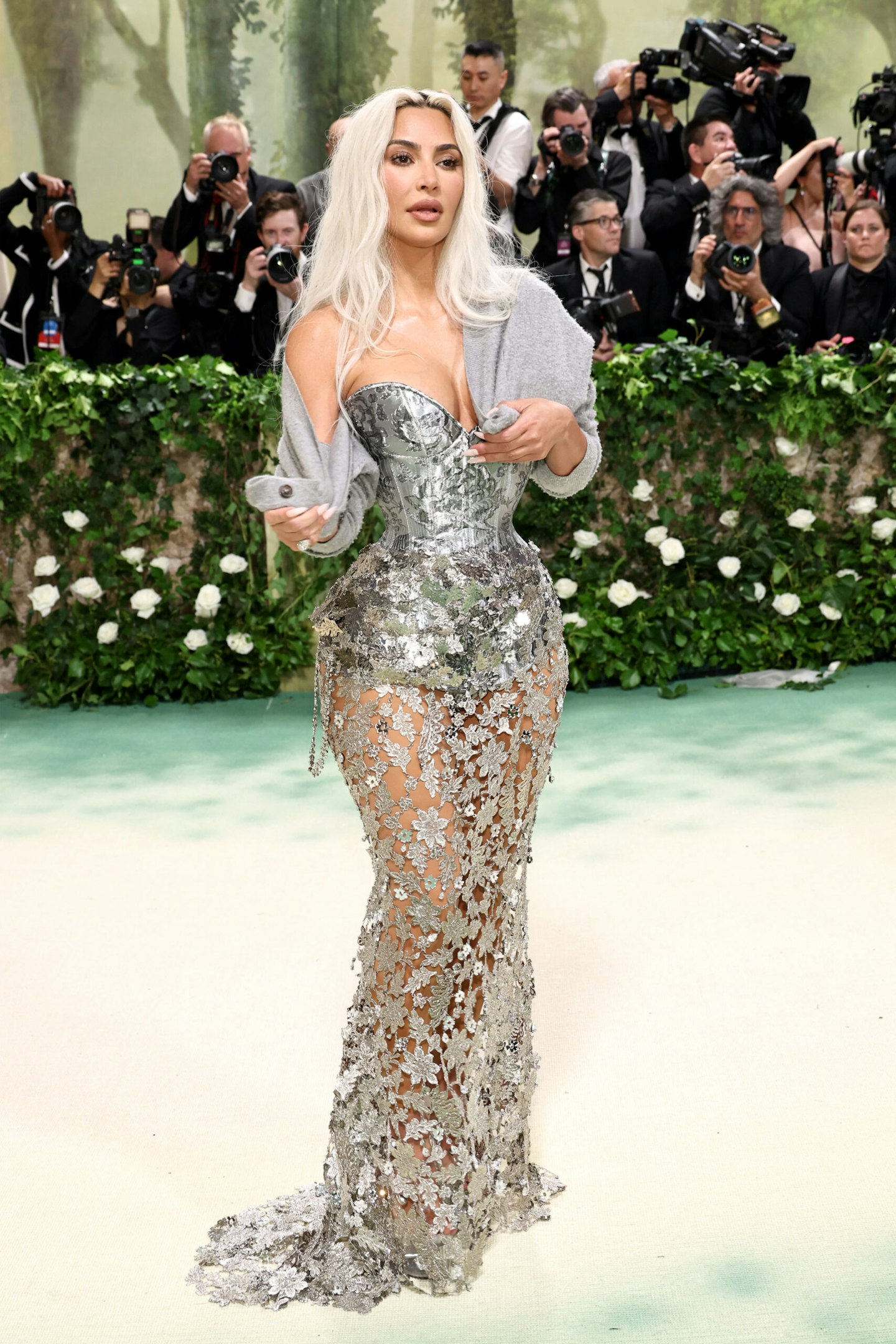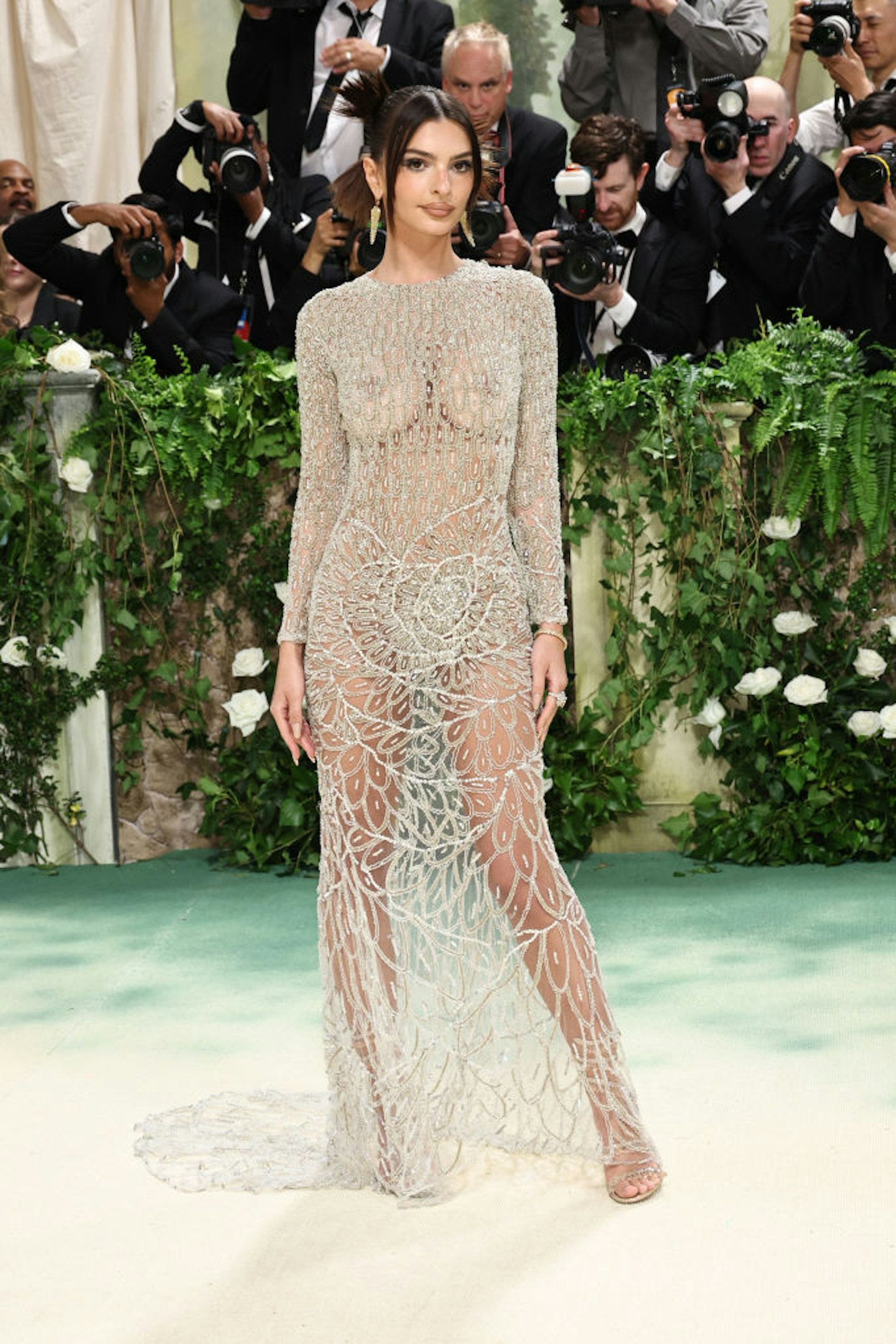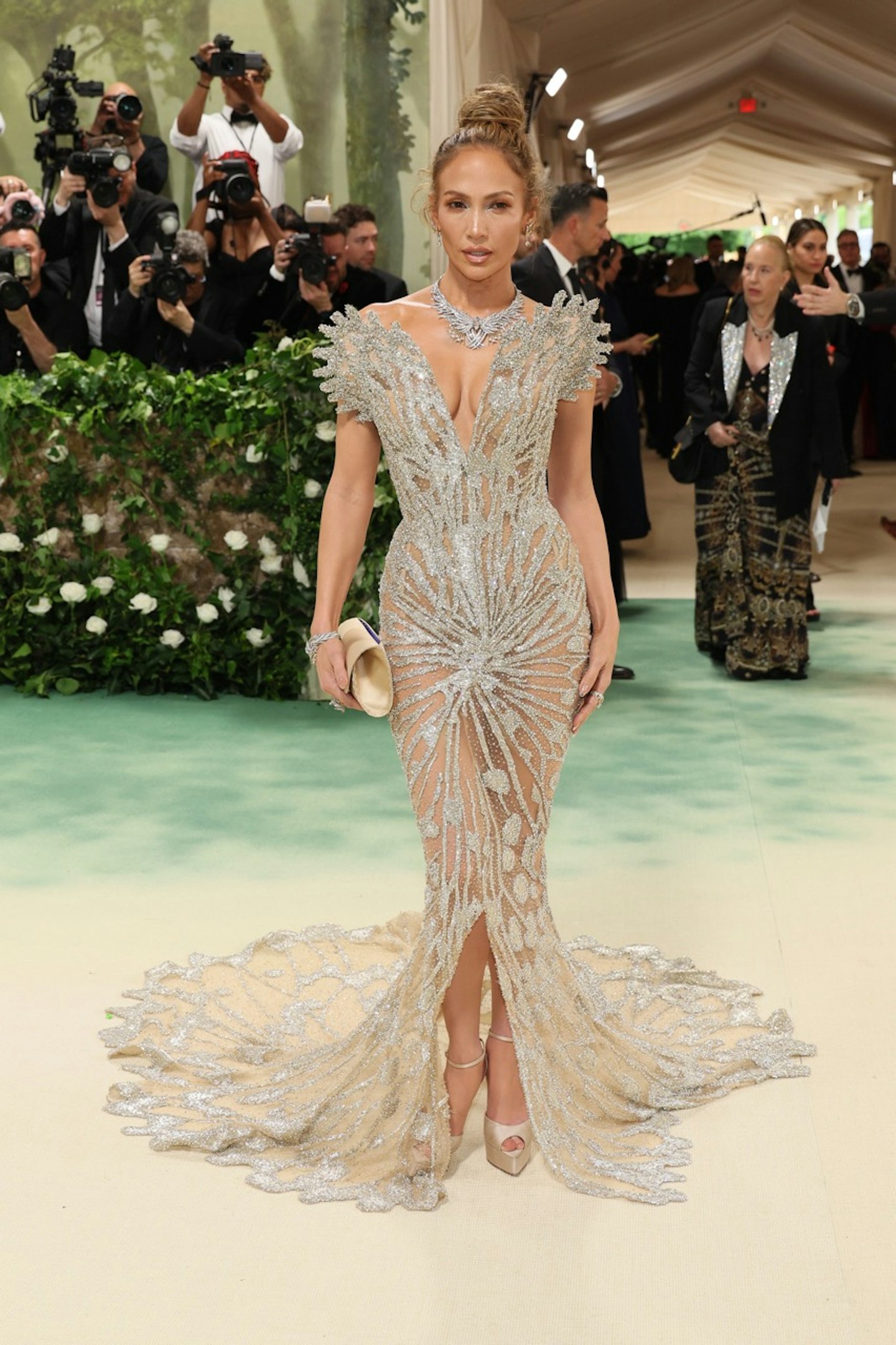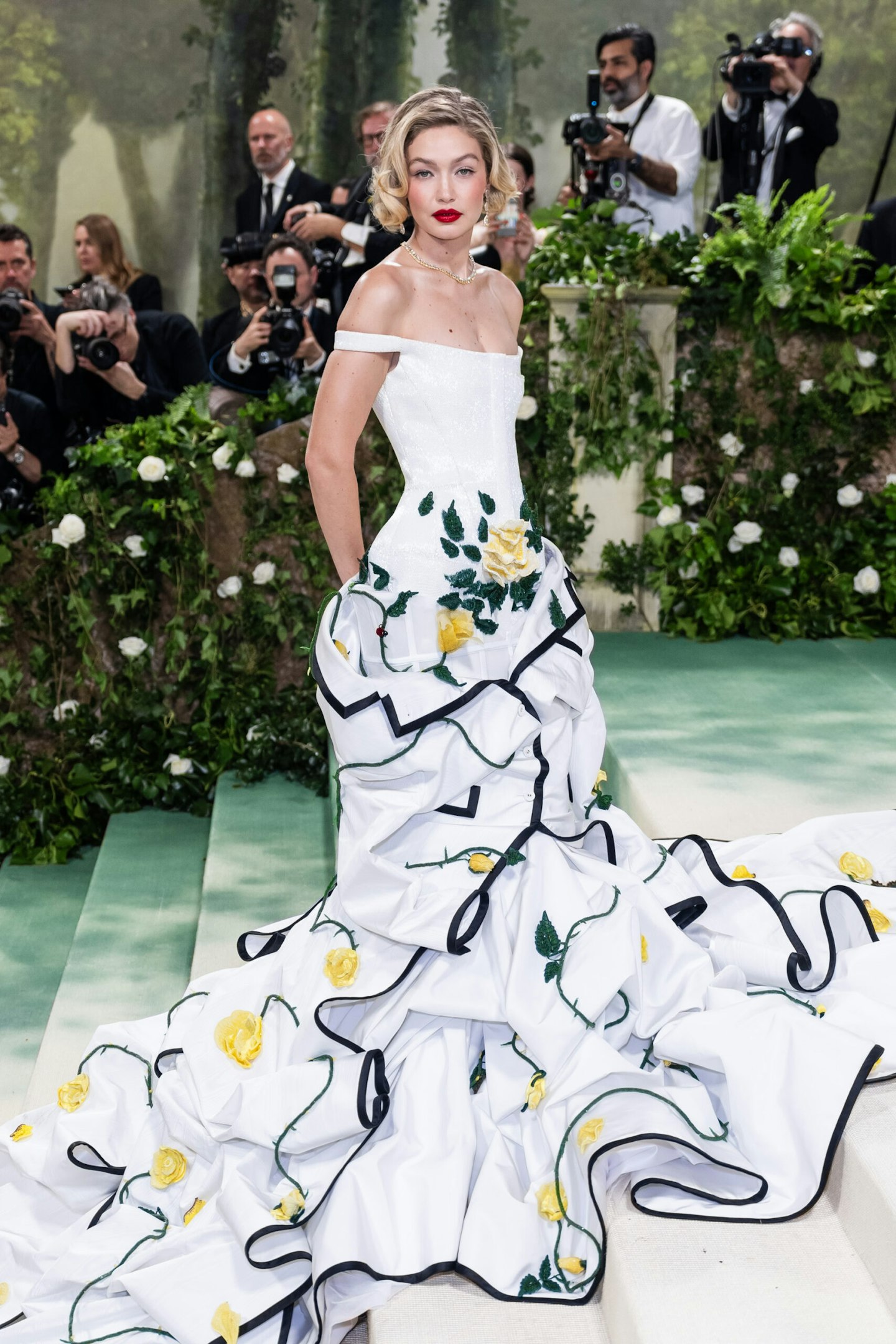When regaling the protracted horror story that serves as my firstborn’s birth (not to pregnant women I might add), there’s always the sense that it probably doesn’t get much worse; the abridged version is an 18 hour labour, sepsis, emergency C-section, dural puncture from the epidural, meningitis from the blood patch to close the hole in the membrane of my spinal cord culminating in a month-long stay in hospital in excruciating pain and not knowing if I would ever walk again. So, on discovering that searches for ‘plastic surgery’ soared by 72% following the Met Gala on 6th May with searches for ‘mommy makeovers’ - a double whammy tummy tuck and boob job - increasing by 43%, it got me thinking about how my brittle post-partum self would have reacted to a barrage of shimmering, nearly-nude celebrity ‘moms’ with waists the size of polo mints. I suspect it wouldn’t have helped.
In those dark - both figuratively and literally – hours and weeks that followed in the hospital and with no family nearby, like a malevolent mycelium, social media became the warped touchpoint that forged my connection to a world from which I was at the very least, physically cut off. Doused by a flurry of volatile hormones and copious pain relief drugs, I began obsessively charting the timelines of celebrity mothers and their rapidly diminishing waists all of which had seemingly slunk into their size 8 jeans a couple of weeks after popping out babies. Merely a lucky gene handout or had they, as Cardi B has openly owned up to, had ‘mommy makeover’ surgery?

Few of us are immune to the comparison carousel that anyone with a phone is subjected to on an almost minute by minute basis, but at a time when women experience the biggest change their bodies will ever go through it’s no surprise that it can reach fever pitch. It’s also why it could well have been me furtively googling ‘mummy makeover’ had Kim Kardashian’s waist been plastered over social medial when I was feeling at my lowest ebb. During those fragile first months I was shocked to discover that the tiny droplets of insecurity I thought I’d well and truly shaken off in my twenties had in fact seemingly been suspended in time waiting to be stirred up and solidified by the likes of Kim et al.
The Rise Of The Met Gala Milf
On the most superficial level (and arguably the level it’s supposed to be viewed) the Met Gala is simply a razzmatazz of escapist fashion fantasy; a spectacle purposefully designed to invite ogling and dissection. But under the lens of an uptick in searches for plastic surgery it begins to feel a little more…icky.
'It’s rare that I get people in my clinic requesting to look like a certain celebrity as I think most people are realistic but subconsciously we can’t help but be affected by images of the ‘body beautiful’ and this is a very real problem,' says Mr Pundrique Sharma, consultant plastic surgeon at the Harley Medical Group, who admits to spending a significant proportion of his time telling women that they don’t need surgery they’re asking for. 'The expectation of how women think they should look following childbirth is totally unrealistic. Apart from a few glimpses of naked bodies in a changing room – which is still a select group of people – most women have no idea of what normal naked bodies look like. Your points of reference are only what you see in the media and on social media which is not an accurate representation of reality.' Kim Kardashian’s waist for example? Not ‘normal’.

Celebrities extol that they’ve never felt so beautiful/empowered/fulfilled as when they were pregnant, but it’s not until recently that we’re beginning to see the other side of the (deflated) bump. As well as A-listers such as Kourtey Kardashian admitting it’s hard work to regain any semblance of their pre-pregnancy bodies (and there has been a refreshing slew of post-partum selfies from the likes of Binky Felstead, Katy Perry and Ashley Graham showing still-present bumps, slivers of fresh, pink stretch marks and surgical pants (although they’re usually still attributed as ‘brave’ rather than ‘normal’).
But then the Met Gala came along and we have seemingly undone decades of work. Clothes so restrictive that grown women had to be carried up stairs hark back to Victorian sensibilities of dress where womenswear was designed to inhibit movement and amplify ‘frivolity, delicacy, inactivity and submissiveness’; the antithesis to what the modern mother supposedly represents.

The uptick in searches for ‘mummy make overs’ as a direct reaction to the Met Gala demonstrates that the body positivity messaging we’ve been seeing for over a decade now either isn’t getting through or the said sleep-deprived, hormone-addled ‘mummies’ are a particularly vulnerable sector of society. Whether or not they’re following through with surgery (tummy tucks and boob jobs assume top spots in the 10 most popular cosmetic procedures of 2023 according to British Association of Aesthetic Plastic Surgeons) is almost irrelevant, it’s the fact that we’re seeing a direct increase in searches following the Met Gala imagery which marks a worrying shift.
The fact that we’re even having to consider our bodies at a time when they have created and birthed an entire human being let alone attributing a term to it (and one that feels nauseatingly noughties-reality-TV-show at that) is a depressing reflection of how we seem to be backsliding into that space. Whilst the conversation about ‘bouncing back’ is certainly not new, it’s one I had hoped had been left behind alongside tinted glasses and butterfly clips.
'As a doctor, I take particular issue with the nomenclature,' says Mr. Sharma. 'Calling it a ‘mummy makeover’ derogates the fact that this is still serious surgery that carries all the associated risks. It’s a lot to take on in one go and challenges you physiologically – it’s not the same as getting a facial.'

What is a ‘mummy makeover’?
'‘Mummy makeover’ is an umbrella term and can cover a range of aesthetic (cosmetic) plastic surgery procedures designed for breast and body changes that persist after pregnancy and breastfeeding,' says Nora Nugent, the vice president of British Association of Aesthetic Plastic Surgeons (BAAPS). 'Usually, it refers to a combination of abdominoplasty (tummy tuck) and breast surgery (augmentation, lift or reduction surgery). But other surgery such as labiaplasty or facial rejuvenation procedures can also be included. The aim is to treat the persistent changes to a woman’s body after pregnancy such as rectus muscle separation and loose skin in the tummy or changes in size or sagging of breasts.'

Mummy makeover surgery: the pros and cons
Whilst I find the ongoing conversation about mother’s bodies a tad depressing, I am also firmly on the side of doing whatever makes you feel your most confident self, which my friend – whose entire personality has blossomed since having a tummy tuck – is testament to. One flip-side to the body confidence conversation is the feeling that we’re no longer allowed to feel depressed about being left with skin the consistency of stretched pizza dough when we’re supposed to be simply appreciating the ‘amazing bodies’ that brought about life.
'These surgeries can be transformative with benefits both physically e.g. restoration of abdominal wall integrity or reduction of heavy breasts and psychologically in terms of restoring body confidence or reducing self-consciousness,' says Nugent. 'However, they need to be properly planned and undertaken by qualified plastic surgeons in safe, regulated hospital environments,' she warns. 'Before planning such surgery, women should be at least six months after pregnancy and/or breastfeeding are finished, body changes related to these, and weight changes should have stabilised and weight should be at a healthy level. It is important to consider future pregnancies as well as it is better to postpone this type of surgery until after your family is complete. Finally, choose the surgeon carefully.'
Cassie Steer is Grazia's Acting Head of Beauty where she covers all things health, beauty and wellness
